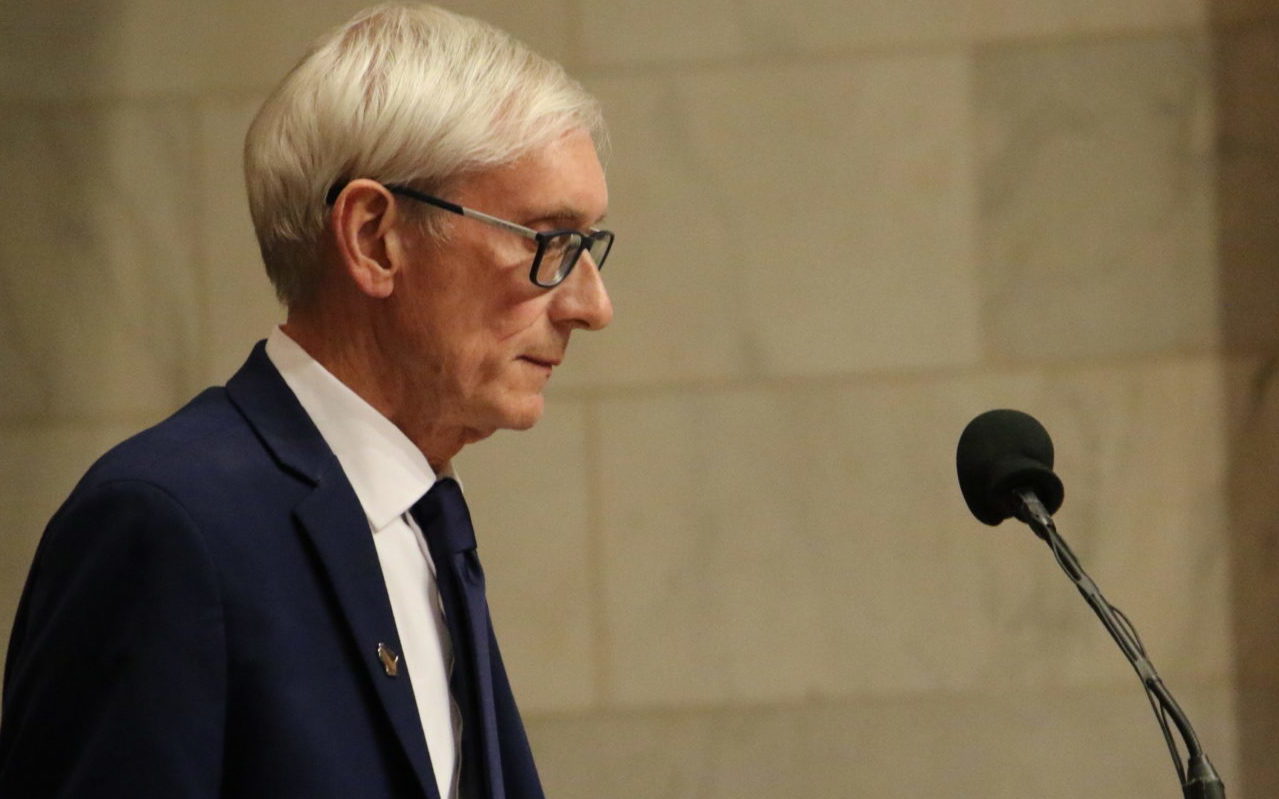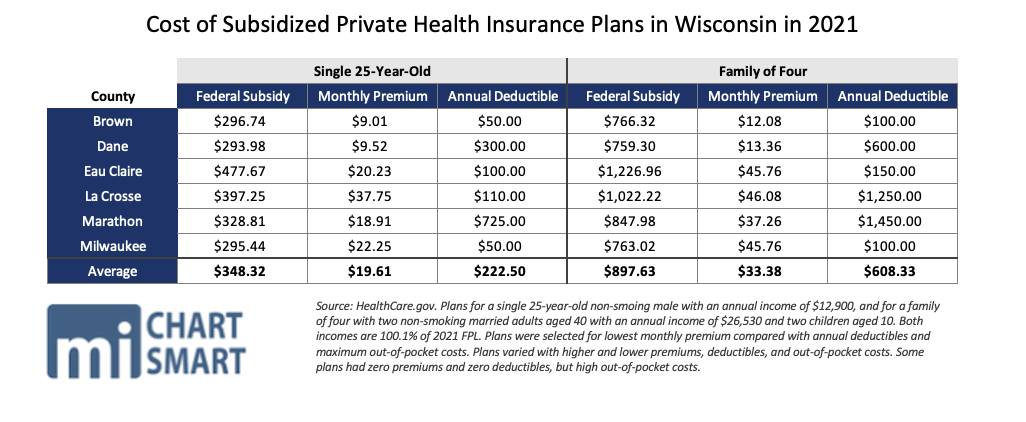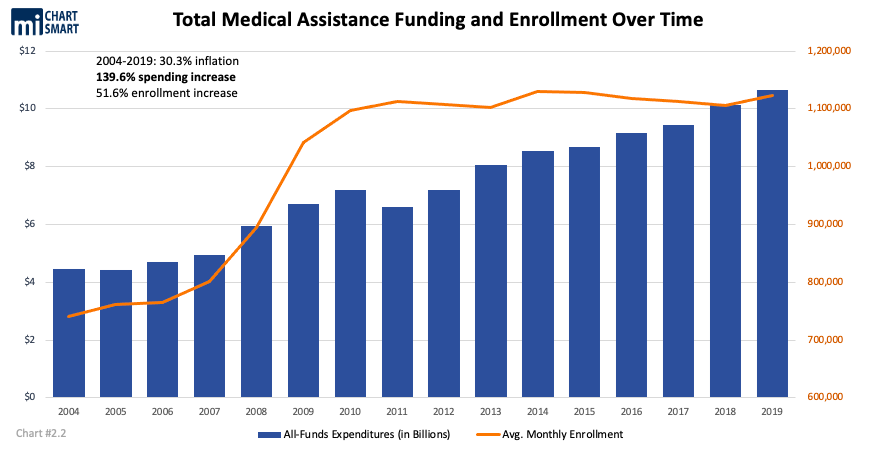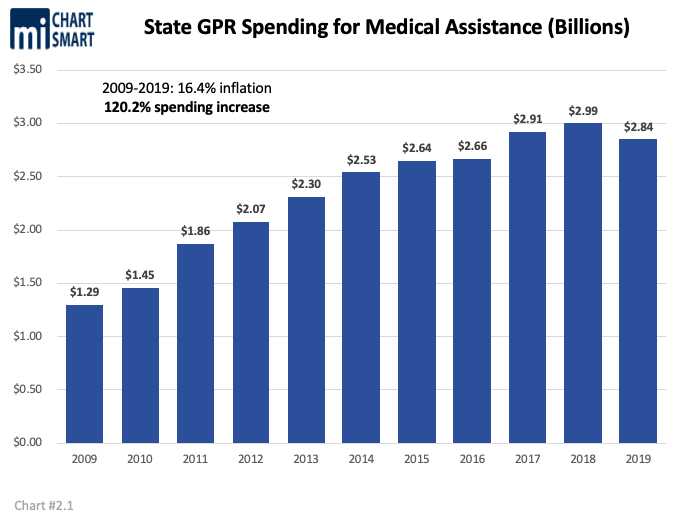
Governor Evers called yet another special session of the Legislature—this time for a Medicaid expansion that Wisconsin neither needs nor should enact. Dan O’Donnell explains what’s really going on here.
May 26, 2021
Perspective by Dan O’Donnell
Governor Evers really, really seems to like calling the Wisconsin Legislature into special session in order to score political points. Unfortunately for him, Legislative Republicans have gotten really, really good at gaveling in and then gaveling out these sessions so quickly that no one notices them.
For no real reason other than to force Republicans to reject what Evers believes is a popular proposal, the Governor called them into special session last week to take up the Medicaid expansion that they have resisted since it was first offered seven years ago.
“It’s time, enough politics,” Evers said…while playing politics.
The game didn’t last long, though: the State Assembly’s special session on Tuesday lasted all of 40 seconds. The State Senate’s lasted less than 10.
If the Governor really wanted the $850 million in federal money conditioned on expanding Medicaid, Assembly Majority Leader Jim Steineke and Senate President Chris Kapenga rightly pointed out, he could just use some of the $2.5 billion in federal COVID-19 relief that isn’t tied to a massive increase in Medicaid spending.
After all, Republicans did put forth an array of bills that would have spent a portion of that massive windfall on the sorts of “economic development projects” that Evers promised, but he vetoed every single one.
“There are no uninsured adults in the coverage gap in Wisconsin because the state is providing Medicaid eligibility to adults up to the poverty level under a Medicaid waiver,” the Kaiser Family Foundation explains.
The Governor—like nearly every Democrat in state government since 2014—wants Wisconsin to accept the Affordably Care Act’s Medicaid expansion, which would allow anyone earning below 138% of the federal poverty level to qualify for it.
This, Democrats have argued, will provide affordable health care coverage to those who can’t currently get it because they are in the dreaded “coverage gap”—earning too much to qualify for Medicaid but too little to qualify for premium tax credits to offset a purchase on the Obamacare exchanges. This is admittedly a problem in the 12 states that haven’t yet taken the Medicaid expansion.
But it’s not an issue in Wisconsin. There is no coverage gap here.
“There are no uninsured adults in the coverage gap in Wisconsin because the state is providing Medicaid eligibility to adults up to the poverty level under a Medicaid waiver,” the Kaiser Family Foundation explains.
“In 2013, Wisconsin’s Governor Scott Walker requested a federal waiver that made all childless adults up to 100% federal poverty level (FPL) eligible for Medical Assistance (MA) and shifted those between 100-200% FPL onto the Obamacare exchange,” a recent MacIver Institute analysis noted. “This meant that poor people in Wisconsin, who normally would be in the coverage gap, now have a guarantee of available, affordable coverage on the exchanges.“
In addition, billions of dollars in tax revenue go to funding Wisconsin Medicaid and BadgerCare Plus each year, making low-income medical assistance in the state among the best-funded in the nation.
“From 2009 to 2019, Wisconsin invested $92.4 billion all funds (which includes federal and state spending), including $25.5 billion General Purpose Revenue (GPR) funds into MA,” the MacIver Institute reported. “In 2019 alone, the State of Wisconsin invested $10.66 billion all funds, $2.84 billion GPR on 1,123,000 MA recipients. Without expanding MA eligibility, the cost to continue services for those already enrolled in Wisconsin’s MA program will be $1.49 billion all funds in Fiscal Year 2021 and $1.42 billion all funds in Fiscal Year 2022. Even without the Expansion, Wisconsin’s MA program already covers all optional MA benefits and offers 28 programs for various populations in need.”
Medicaid expansion in Wisconsin is obviously not necessary to provide medical coverage to the state’s poor, but Governor Evers is livid that Republicans are passing up on a massive amount of federal money with no strings attached.
Naturally, there are strings attached—most notably that the federal money that funds the expansion is temporary. Wisconsin taxpayers will someday be on the hook, and with a national debt that has now soared past $28 trillion, that day may come sooner than expected.
If hundreds of thousands of people are suddenly on Wisconsin’s Medicaid rolls without federal funding to subsidize them, then who bears the cost? The Wisconsin taxpayer, of course. Moreover, state taxpayers are also federal taxpayers, and are already subsidizing the Medicaid expansion in 38 states, so the notion that accepting what amounts to a federal bribe is “free money” for Wisconsin has always been ludicrous.
If hundreds of thousands of people are suddenly on Wisconsin’s Medicaid rolls without federal funding to subsidize them, then who bears the cost? The Wisconsin taxpayer, of course. Moreover, state taxpayers are also federal taxpayers, and are already subsidizing the Medicaid expansion in 38 states.
So too has Governor Evers’ use of the special session to make a political point been. In his first two years in office, he called more special sessions than any governor in more than 30 years. None of these sessions were to actually enact policy in a divided government; they were to highlight how terrible his political opponents were.
Earlier this year, he called a special session in an attempt at deflecting the blame for his abysmal failure on administering unemployment benefits made necessary by his own statewide shutdown. He wanted legislators to modernize the unemployment system, but they gaveled in and out in 30 seconds and reminded the Governor that he could make those changes on his own without legislative approval.
Evers has attempted to wield the special session as a political bludgeon, but Republicans have proven themselves to be quite literally too quick for him. In the time it takes to read this sentence, the session was over. In the time it takes to read this sentence, the session will be forgotten—just like the last one, and the one before that, and the one before that.
Eventually, one would hope, Evers would start to get the message.


